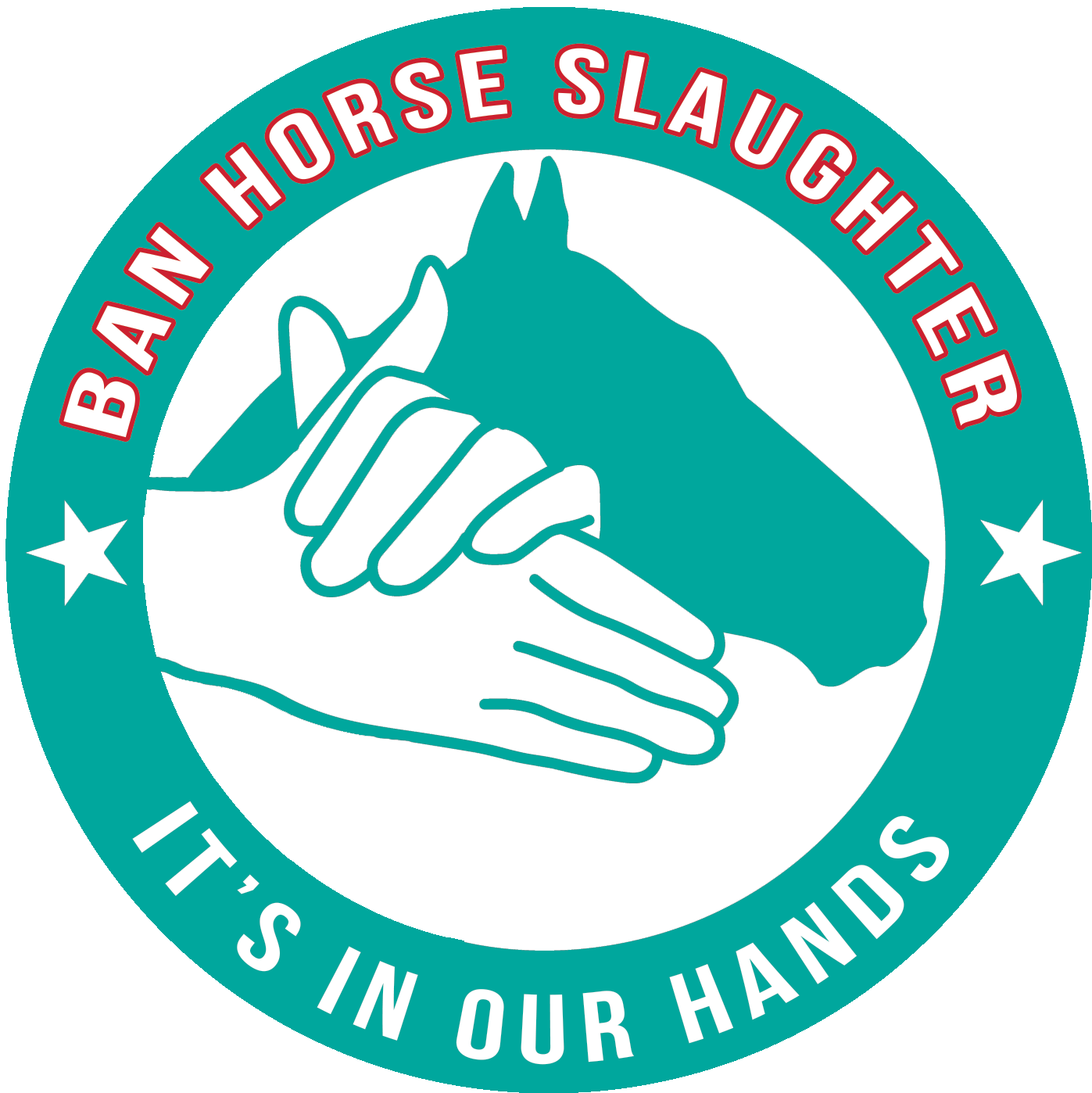Banning Horse Slaughter Is A Bipartisan Issue
The issue of banning horse slaughter for human consumption caught the public’s attention in 1998 when 59% of California voters supported the passed Proposition 6, which prohibited the slaughter of horses and the sale of horsemeat for human consumption in the state. It also prohibited sending horses out of state to be slaughtered for human consumption. Proposition 6 had bipartisan support from California voters and was championed by a wide range of horse advocates and humane and farm groups who came together to make this Proposition 6 state law.
Realizing the need for a national bill given the only operating horse slaughter plants were located in Texas and Illinois, lobbyist Chris Heyde reached out to the Republican Representative from Maryland, Connie Morella to lead the charge against horse slaughter in Congress. Representative Morella along with three of her Republican and three Democratic colleagues introduced the first bill to ban horse slaughter in the US Congress entitled the American Horse Slaughter Prevention Act. While the bill didn’t pass, it demonstrated a willingness by members of Congress from both parties to pursue a federal ban.
In 2005, we saw continued proof of bipartisanship to end the cruel practice of horse slaughter for human consumption when Representative John Sweeney (R-NY) successfully amended an annual House Agriculture appropriations bill prohibiting the use of federal funds to inspect horse meat with wide bipartisan vote of 269-158. That same year, a parallel bipartisan effort in the Senate led by Senator John Ensign (R-NV) to successfully limit USDA funding to inspect horse slaughter facilities was approved in the Senate Agriculture appropriations bill. Their efforts became law with the enactment of the fiscal year 2006 Agriculture appropriations bill.
These bipartisan efforts had an immediate impact because prohibiting funds to inspect horse meat was the key to ending domestic slaughter for human consumption. Under the Federal Meat Inspection Act, horses are categorized as an amenable species, meaning that horse meat cannot be sold for human consumption in the United States without being first inspected by the United States Department of Agriculture (USDA). The last three horse slaughter facilities in the U.S. closed in 2007 in the wake of the 2006 horse meat inspection ban along with state legislative and legal efforts.
While this was a major success, the fight for a permanent ban did not end there. In 2007, Senator Mary Landrieu (D-LA) re-introduced the American Horse Slaughter Prevention Act as a companion to Representative Janice Schakowsky’s (D-IL) version in the House. Neither passed but they helped set the stage for states like Illinois to sign laws banning the slaughter of horses for human consumption.
A setback occurred in 2011 when the restrictions on inspections were not included in annual appropriations and horses were once again threatened with this inhumane practice and efforts were made to make horse slaughter for human consumption a booming business once again. While the subsequent year saw the inspection prohibition reinstated, the need to annually reaffirm the bipartisan belief that horses should not be slaughtered for human consumption leaves a constant looming threat.
Only through a permanent ban on horse slaughter for human consumption can we rest easy knowing that domestic horses are protected from this practice and there are still bipartisan efforts underway in Congress to do just that. H.R. 961, the Safeguard American Food Exports Act and S. 2006, the John Stringer Rainey Safeguard American Food Exports Act would make the ban permanent and protect our horses from slaughter for human consumption in perpetuity.
We would be honored if you would join us in our efforts to support these bills to have a permanent ban on horse slaughter for human consumption signed into law. Click here to take action today.

